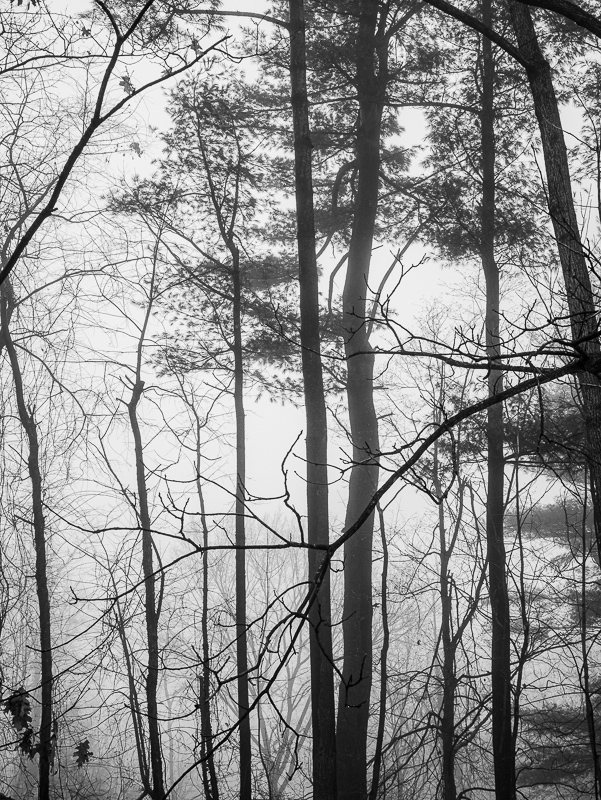Every Picture Is a Compromise
Lessons from the Also-rans
Most photography websites show the photographer's very best work. Wonderful. But that's not the full story of a creative life. If we want to learn, we'd better pay attention to the images that aren't "greatest hits" and see what lessons they have to offer. Every picture is a compromise — the sum of its parts, optical, technical, visual, emotional, and even cosmic – well, maybe not cosmic, but sometimes spiritual. Success on all fronts is rare. It's ok to learn from those that are not our best.
This is a series about my also-rans, some of which I've been able to improve at bit (i.e., "best effort"), none of which I would consider my best. With each there are lessons worth sharing, so I will.
Original digital captureWhat I saw that I liked:Foggy trees, one of my favorites I never tire of. What I don't like in the picture:Out of the camera, it's not uncommon for foggy trees to be a bit weird in their color rendition. This one (above) has a magenta cast to it. Yuck. What I learned:I could try to neutralize that magenta cast, or I could simple convert to b/w — which is my preference anyway. Also, it's common for light meters in cameras to render fog as a sort of middling gray. Tonal tweaks are almost always needed. And one final thing. Part of the reason I believe that some foggy trees work better than others has to do with the need for three tones: somewhere a black, some layer a soft gray, and then the light(not white) fog. |


